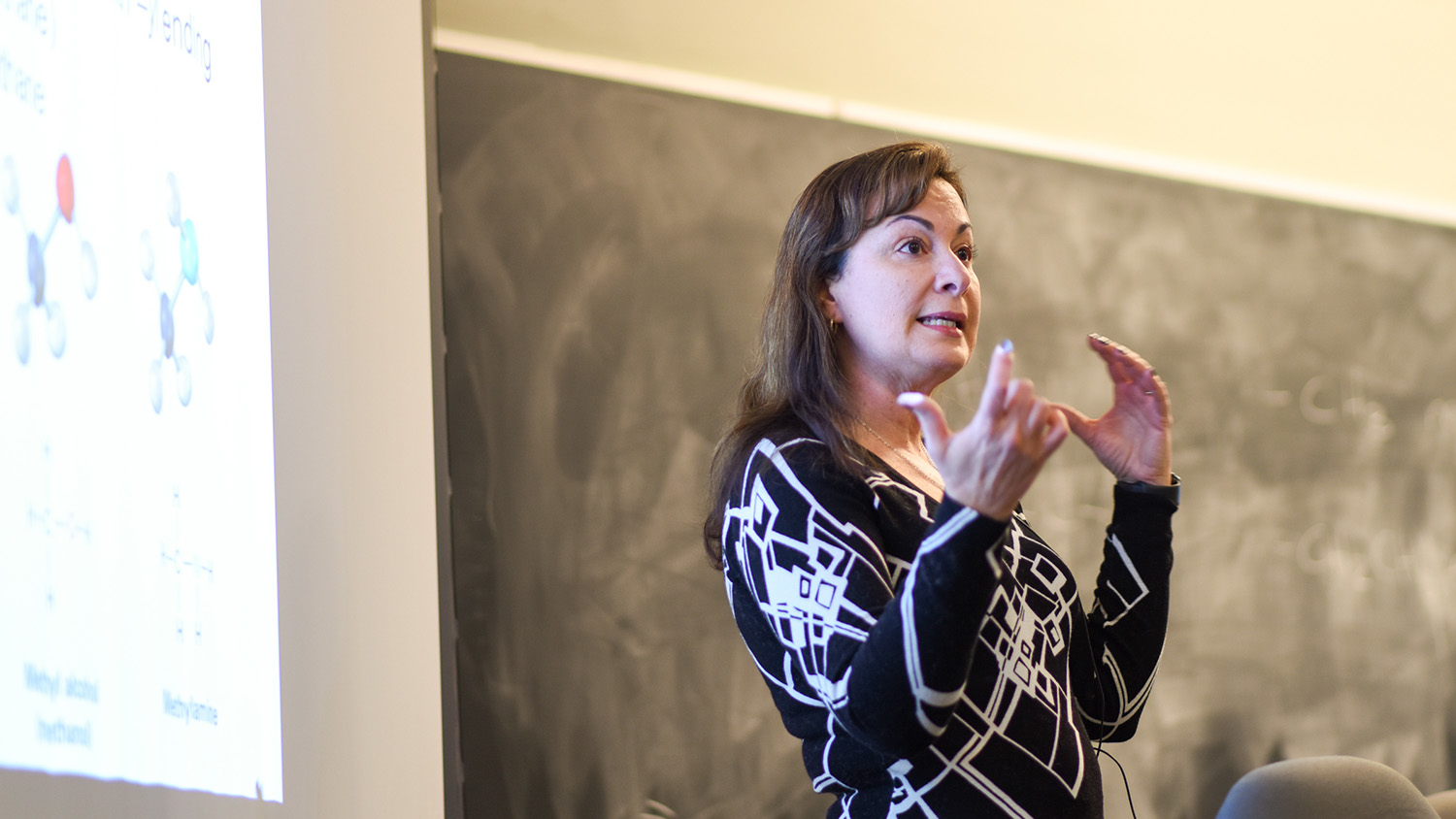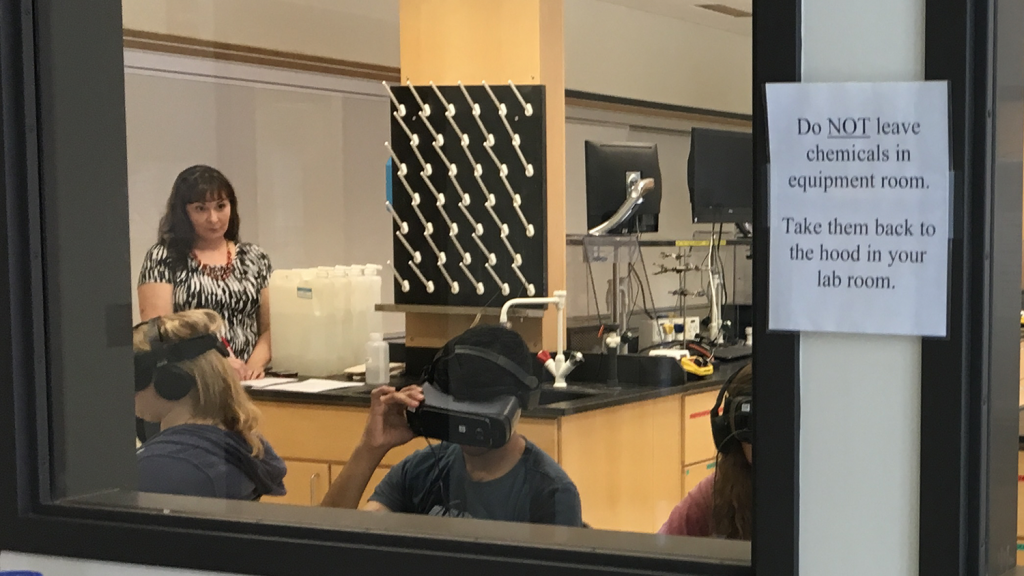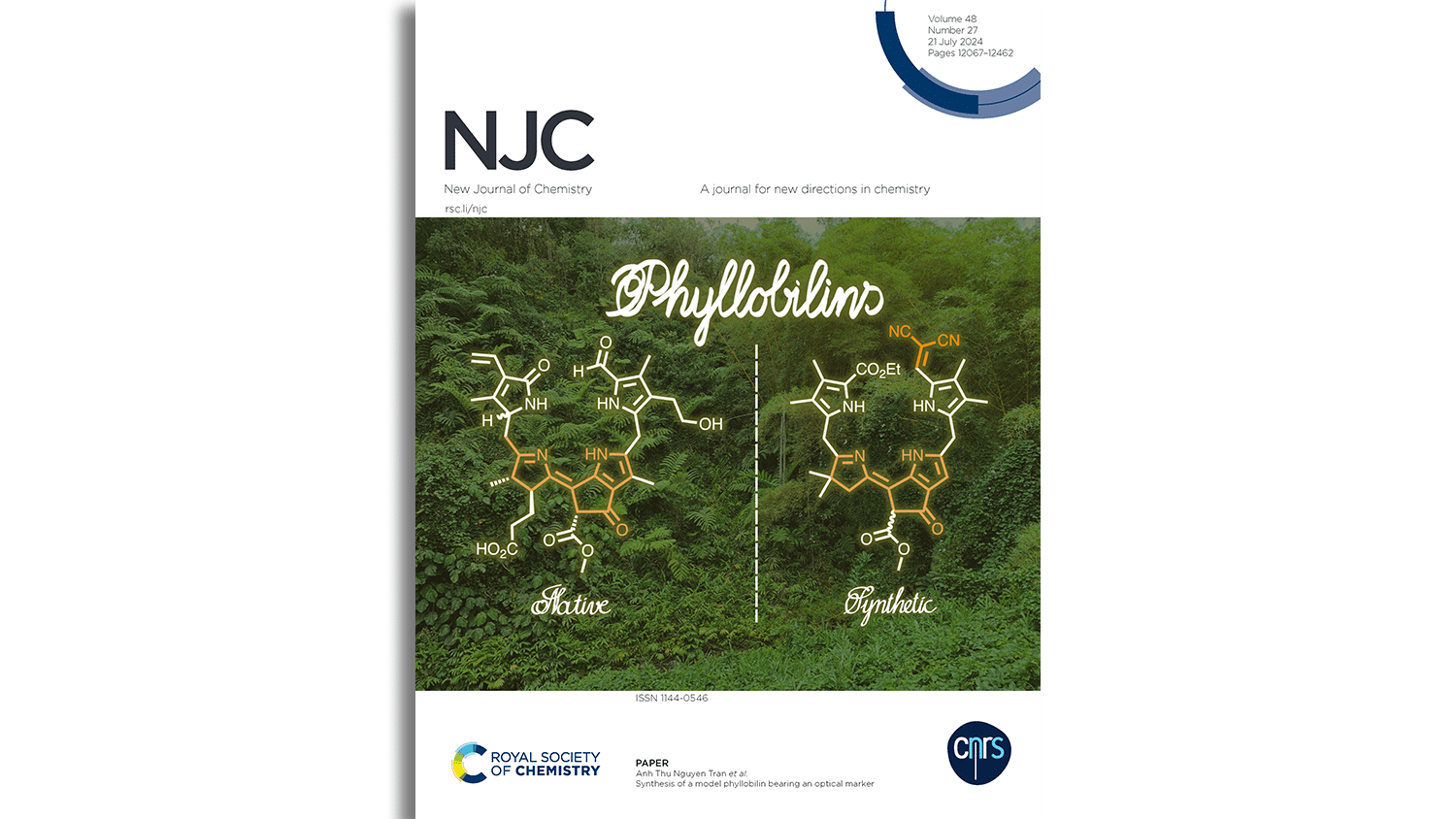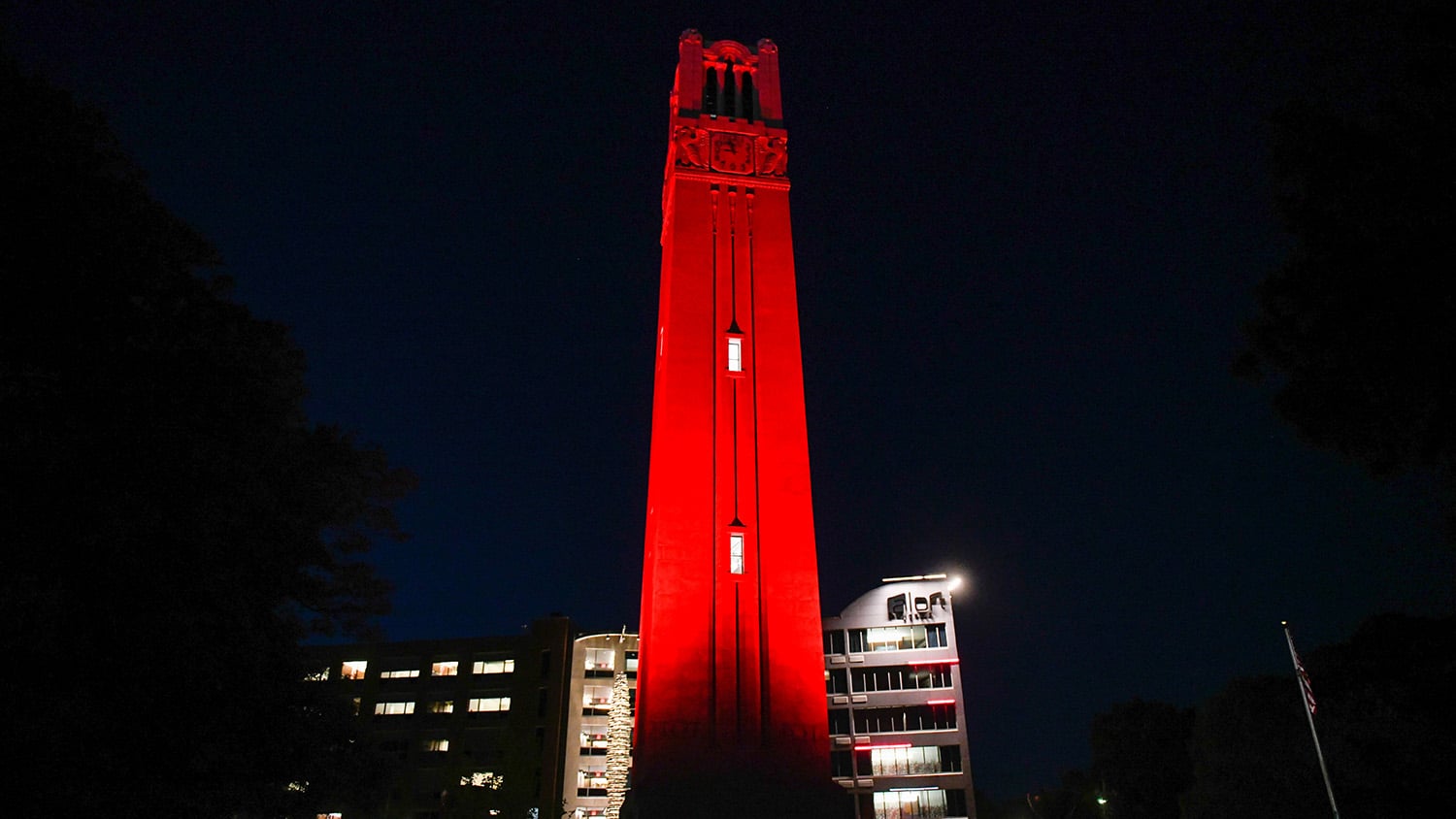Teaching the Pack: Maria Gallardo-Williams

A few years ago, Maria Gallardo-Williams started a project that turned out to be visionary.
For Gallardo-Williams, teaching professor and Alumni Association Distinguished Undergraduate Professor in the College of Sciences‘ Department of Chemistry, hands-on laboratory work was a big part of her classes. But what about students who were pregnant, disabled or deployed with the military or otherwise couldn’t physically be present in the lab?
“I had used videos to supplement my labs before, but I wanted to build an entire lab course that was a virtual experience so those students wouldn’t be left behind,” she said.
She worked with NC State DELTA for two years to create the content and adapt the technology for a full semester of online virtual reality (VR) organic chemistry labs. They finished the labs in 2019 and tested them that fall with a small group of students. The timing turned out to be perfect.
“The idea that I’d need these labs because of a pandemic never crossed my mind,” Gallardo-Williams said. “But when in-person classes ended in spring 2020, we had the labs ready for organic chemistry students within one week, and we’ve been online ever since.”

Reimagining the Lab Experience
The videos allow chemistry students to immerse themselves in the lab environment, making the same decisions they would in a physical lab, with each decision impacting the next step of the experiment.
“Students make all the decisions, from choosing a sample onward, draw their own conclusions and write up lab reports when they finish,” Gallardo-Williams said.
A virtual teaching assistant guides students through each lab session. Gallardo-Williams intentionally chose students of various races and genders to lead each lab so that minority students are exposed to scientists who look like them.
“I’ve heard from minority students that they sometimes don’t feel seen in a physical lab,” Gallardo-Williams said. “In these virtual labs some of them have reported feeling more engaged and empowered to participate.”
According to Gallardo-Williams, the labs have been popular with students, who appreciate the ability to rewind and repeat parts of the instruction they don’t understand and to keep problem-solving until they get it right.
“The VR labs were an engaging experience that helped me learn the course material through the use of technology,” said Emilia Casper, a senior in Science, Technology and Society.
“While there are definite advantages to having in-person labs, I was impressed by the quality and interactivity of the VR labs,” said Emily Haupt, a sophomore in animal science. “It was obvious that a lot of work went on behind the scenes to create that experience.”
Haupt said that although the experience was independent and virtual, she still felt supported as she navigated the lab course. “One of the main reasons why my VR lab experience was successful was because Dr. Gallardo-Williams and my teaching assistant were so approachable,” she said. “I feel as though I took away the knowledge and learning outcomes from the VR labs that I was supposed to while also enjoying going through the simulations on my laptop.”
Though the transition to online teaching hasn’t been seamless, having these courses ready to use has made a huge difference for Gallardo-Williams.
“I actually love teaching online,” she said. “It’s been a big shift, but I already had some tools in place to make it work.”
Technology as a Tool
NC State isn’t the only school using the VR labs. Since the pandemic began, they’ve been adopted by educators at at least 45 schools in seven countries around the world after Gallardo-Williams shared them on her Twitter account. She often uses social media to exchange ideas with fellow teachers around the world.
“We have a lot of good resources in house, but sometimes you have a specific problem that nobody else at your school is dealing with,” she said. “It’s helpful to crowdsource solutions with people at other campuses who are having the same problem and to get ideas immediately.”
Incorporating technology into the classroom has long been one of Gallardo-Williams’ interests. In 2017, she completed DELTA’s Faculty Fellows Program as part of its first cohort. The program helps train and empower faculty to serve as mentors to other faculty looking to incorporate more technology into their classrooms.
As part of the program, she created a series of S.M.A.R.T. Lab videos demonstrating various lab techniques and equipment that eventually became the inspiration for her VR lab project. Several of these videos have more than 10,000 views on YouTube — one on calculating theoretical yields has more than 222,000.
Helping Students Find Their Passions
Gallardo-Williams loves the way her job helps her combine many of her passions.
She became a teacher largely because of her chemistry teacher in her last year of high school in Venezuela. “She was a strong, independent woman and explained things so clearly, and I thought, ‘I want to do that,’” she said. “I’ve kind of always modeled myself after her.”
Gallardo-Williams majored in chemistry and became a teaching assistant as an undergraduate. “Right away, teaching was my favorite part of the job,” she said. “I like the lab, but teaching, to me, is more fun than anything. I live for those ‘aha’ moments when students really get it.”
She hopes her introductory classes, which often include first- or second-year students not majoring in chemistry, help students learn to understand and appreciate chemistry. But Gallardo-Williams ultimately wants them to be inspired by her passion for the subject in a way that helps them identify and pursue their own passions.
“I love chemistry, and I love sharing with students why I love it,” she said. “If you find something you love as much as I love this, whether it’s chemistry or not, apply yourself and do it.”
This post was originally published in NC State News.
- Categories:


